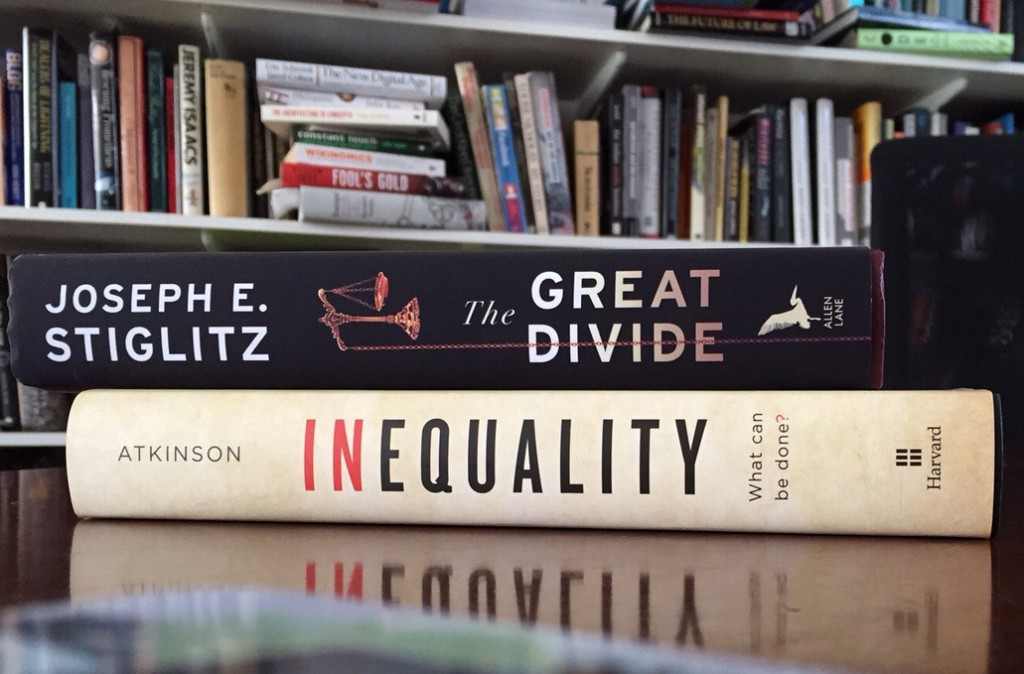The thing about neoliberalism is that it’s a machine for producing and amplifying inequality. In other words, inequality is not a regrettable and inevitable byproduct of an otherwise admirable economic doctrine: it’s what the system is designed to do. Or, as programmers would say, it’s a feature, not a bug.
Hot on the heels of Thomas Piketty come two terrific books. Tony Atkinson has been studying inequality for decades, and his new book
challenges the conventional wisdom that there’s nothing we can do about rising inequality. He sets out a comprehensive set of policies that could bring about a real shift in income distribution in developed countries. To reduce inequality, he says, we need to go beyond taxing the wealthy (though we should also do that). Atkinson thinks we need new ideas in four other areas: technology, employment, social security, the sharing of capital. If I had to summarise the book in a phrase, I’d say it was the embodiment of informed optimism.
Joe Stiglitz has been writing about inequality for ages too, and his new book is a set of essays that expand on the diagnosis he proposed in an earlier best-seller, The Price of Inequality
. Like Atkinson, Stiglitz thinks that we could reduce inequality if we were smart and determined enough. The conventional neoliberal wisdom which says that we have to choose between economic growth and fairness is, he thinks, bunkum. I agree. Trouble is, none of our politicians do.

